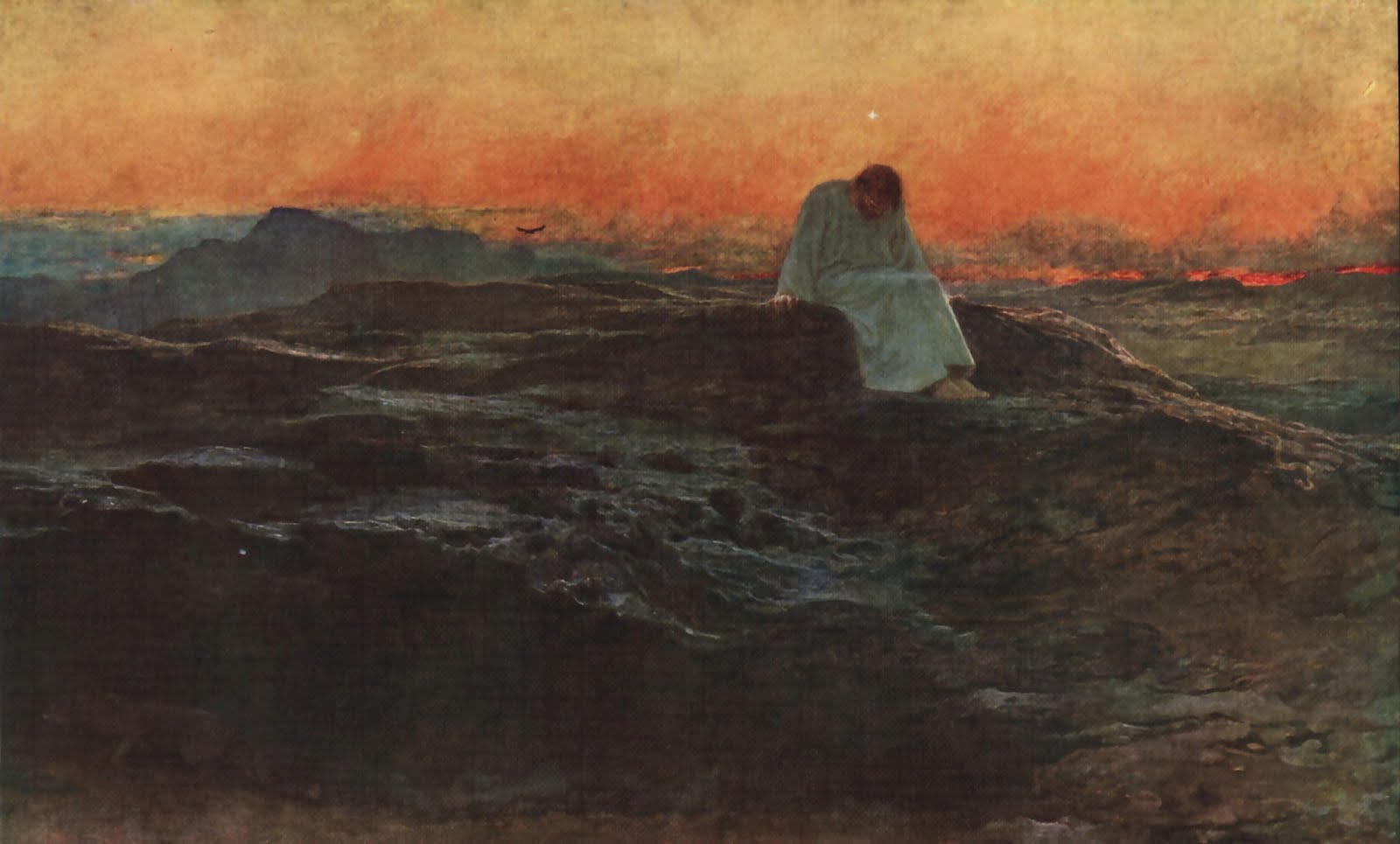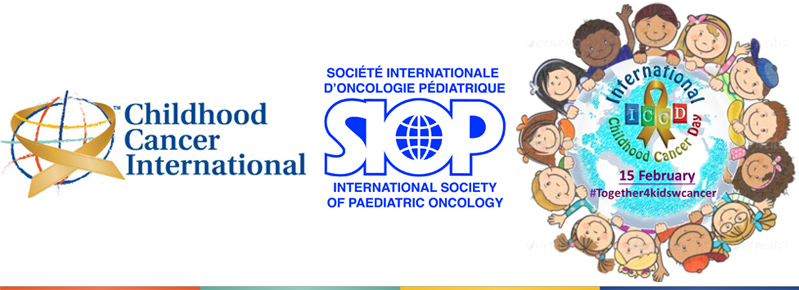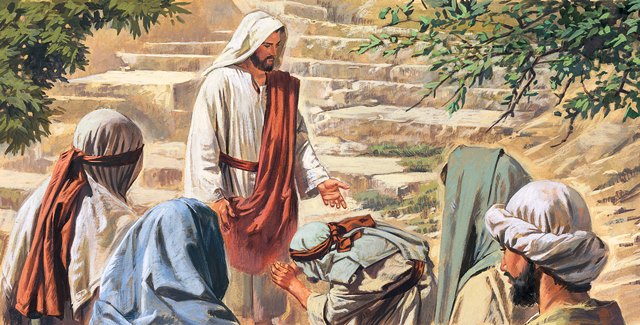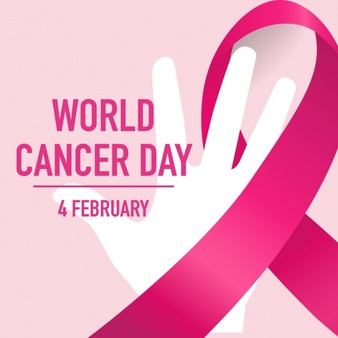The text of Mark relating the temptation of Jesus is much shorter than that of Matthew and Luke.
Notice that ‘temptation’ is printed in the singular because Mark does not give details about this experience of Jesus.
I find this short text (1st Sunday of Lent – Mk.1:12-15) of only 4 verses quite amazing.
4 verses and… 10 themes are mentioned:
- Baptism of Jesus
- the Spirit
- the desert
- Satan
- wild beasts
- angels
- proclamation of the gospel
- Kingdom of God
- conversion
- faith
It is as if the author wanted to give a detailed initiation to the Christian faith in this first chapter of the gospel text!
Personally, the image I choose is that of Jesus among the wild beasts and the angels.
A man – the one who was to call himself “the Son of Man” – between beasts and angels.
Respected by the first and served by the last!
It is, for me, a very good picture of the possible outcome of temptation –
the experience of a person who proves to be a true human being, a genuine child of God.
One who has overcome his/her demons under different guises,
and is in communion with all of creation!
Some practice may be needed to reach this but… this is what Lent is for, no?
Source: Image: A Plethora of Ponderings





 February 13 is World Radio Day, which celebrates the radio as a way of educating people, providing information, and promoting freedom of expression across cultures.
February 13 is World Radio Day, which celebrates the radio as a way of educating people, providing information, and promoting freedom of expression across cultures.
 About World Day of the Sick
About World Day of the Sick
 It may be good to remind ourselves that when the ‘if, perhaps, maybe’ are spoken…” they always come from our side…
It may be good to remind ourselves that when the ‘if, perhaps, maybe’ are spoken…” they always come from our side… World Cancer Day is a global observance that helps raise people’s awareness of cancer and how to prevent, detect, or treat it. This event is held on February 4 each year.
World Cancer Day is a global observance that helps raise people’s awareness of cancer and how to prevent, detect, or treat it. This event is held on February 4 each year.

